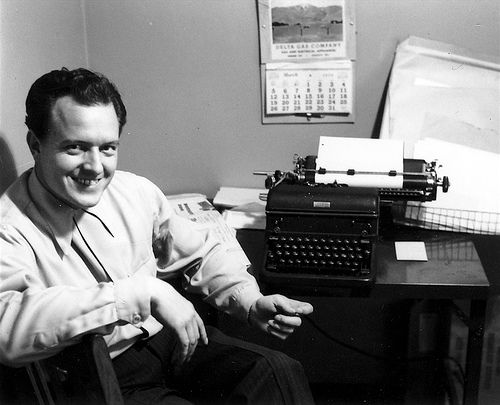“The future of broadcasting” is the title or subtitle or subtext of nearly every panel here. But I’m not seeing a lot of the future. I’m seeing and hearing people who want to keep a hold onto the past. They want to do it in some futuristic ways, sure, but using a template that has passed its expiration date.”
“…as the RTDNA winds down its relationship with NAB, I’m a little sad. When I first started coming to this convention in the early 2000s, the discussions were about “the future.” The discussions are still about “the future” except it’s all Back to the Future. 3D. Protecting journalism from the hoards of camera-toting iPhoners. Broadcasting television in a slightly different way. Fundamentally, the discussion may be about the future, but it’s not nearly futuristic enough.” — Full post here.

